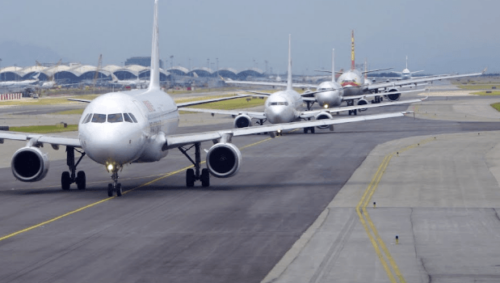The Nigerian College of Aviation Technology (NCAT), Zaria, is one of Nigeria’s leading aviation schools.
The college is committed to producing highly skilled professionals for the aviation industry.
Since it was founded in 1964, NCAT has grown to become the largest Approved Training Organization (ATO) in Africa.
Over the years, the school has trained pilots, aircraft maintenance engineers, air traffic controllers, and many other experts who keep aviation running.
Across Africa, aviation training shows both progress and challenges.
For example, Ethiopia’s aviation academy trains fewer than 50 pilots each year, while Rwanda’s Akagera Aviation School trains about 20 fixed-wing and 11 helicopter pilots per session.
These figures are far below what the industry needs, making many airlines depend on foreign pilots.
In comparison, India issued more than 1,600 commercial pilot licenses in 2023 alone—its highest ever. The country estimates that it will need at least 1,000 new pilots every year for the next five years.
Boeing also projects that India will require around 30,000 new pilots in the next 20 years. This has led to massive investment in flight schools, aircraft, and simulators.
To bridge manpower gaps in Africa, NCAT is setting new standards and positioning Nigeria as a hub for aviation excellence.
The college, which is recognized as a Regional Centre of Excellence by the International Civil Aviation Organization (ICAO), trains not only Nigerians but also students from other African countries.
Its main goal is to provide training that meets global standards and improves aviation safety.
To achieve this, NCAT has been upgrading its facilities and curriculum to match international standards.
Plans are also in place to buy more simulators, modern aircraft, and training equipment. These will improve services and attract trainees from outside Nigeria.
This effort will reduce Nigeria’s dependence on foreign aviation schools, which for years have cost the country millions of dollars in capital flight.
The rector of the college, Dr. Danjuma Ismaila, said his vision when he assumed office earlier this year was to reposition NCAT.
His goal is to keep the college’s status as ICAO’s regional centre of excellence and make it one of Africa’s best aviation schools.
He said NCAT will expand its programmes to meet the changing training needs of Nigeria and other African countries.
“With NCAT Zaria, African countries no longer need to send their students abroad for aviation training,” he said.
Dr. Ismaila explained that his plans focus on infrastructure, manpower, more training programmes, and modern equipment.
He admitted, however, that the college faces challenges in funding because it depends solely on the federal government.
This, he noted, is not unique to NCAT, as the government has many competing needs.
To close funding gaps, the college is working on ways to generate its own revenue, using its equipment and opportunities across Africa.
One of its key facilities is the Boeing 737Ng simulator.
This simulator allows Nigerian pilots to do their type-rating and refresher training locally instead of travelling abroad.
Foreign pilots also come to Zaria to train with the simulator.
NCAT also has an aircraft fire-fighting simulator, which provides realistic training for emergency response teams.
Still, the rector said the college needs more equipment and facilities to become self-sufficient financially.
On the issue of aircraft for training, he explained that delays in delivery were caused by funding shortages.
About five years ago, NCAT signed a contract for 20 Diamond Aircraft that use Jet A1, the same fuel as commercial jets.
This choice was made because aviation gasoline (Avgas), which the older planes use, is very costly and not available in Nigeria.
With Diamond Aircraft, NCAT saves about 75 percent of its annual fuel costs.
So far, only half of the aircraft have been delivered, as the college could not meet all its payment obligations.
Even with this, NCAT currently has 10 aircraft, while its competitors have just three. More planes are expected once funding improves.
Dr. Ismaila also said the college is working to convert the Zaria Hotel into a four-star hotel to accommodate international trainees.
This is to ensure that highly experienced pilots from abroad have comfortable accommodation during their training.
NCAT also plans to extend its runway so it can handle bigger commercial aircraft.
This could attract airlines looking for alternatives to Kaduna Airport, which currently records just one flight daily.
Work on the runway renovation started five years ago and is expected to finish by the end of this year, after which the extension will begin.
However, some parts of the land meant for the project have been encroached upon, and the matter is now in court.
The rector stressed that NCAT’s focus is to strengthen aviation safety through quality training.
“Training is the foundation of safety,” he said. “Without proper training, you cannot be licensed to operate.”
Aviation experts warn, however, that Nigeria must create policies to absorb NCAT graduates into airlines.
Otherwise, the country could face the paradox of unemployed pilots despite a growing aviation industry.
With its plans for new aircraft, simulators, hotels, and an extended runway, NCAT is striving for excellence and financial independence.
In the long run, the college is positioning itself not only as Nigeria’s pride but also as Africa’s beacon of aviation training.


